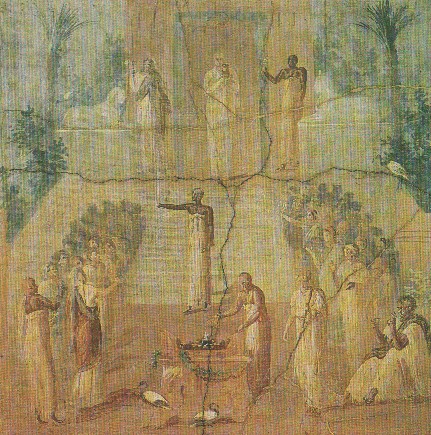The Birth of a Legal System |
Priests of Isis |
|
Positive Law and Transcendental Norms |
|
| Custom (Consuetudo and
Mos
[mos, mores, more]and Positive Law(Ius
positivum)
An anonymous canonist invented the term "Ius
positivum" ca. 1200 A.D. Cicero: Summum ius, Summa iniuria Cicero, De officiis 1.10.33 "Rule of Law"(Regula iuris) "Sovereignty of Law" |
Transcendental legal
systems: Ius gentium,
Ius naturale,
religious law, moral and ethical norms
Lex naturalis and Ius naturale
|
| Natural Law and the Modern Papacy: Pope John Paul II Veritatis Splendor | |
|
Positive law (Ius positivum), John Austin (legal positivism) |
|
